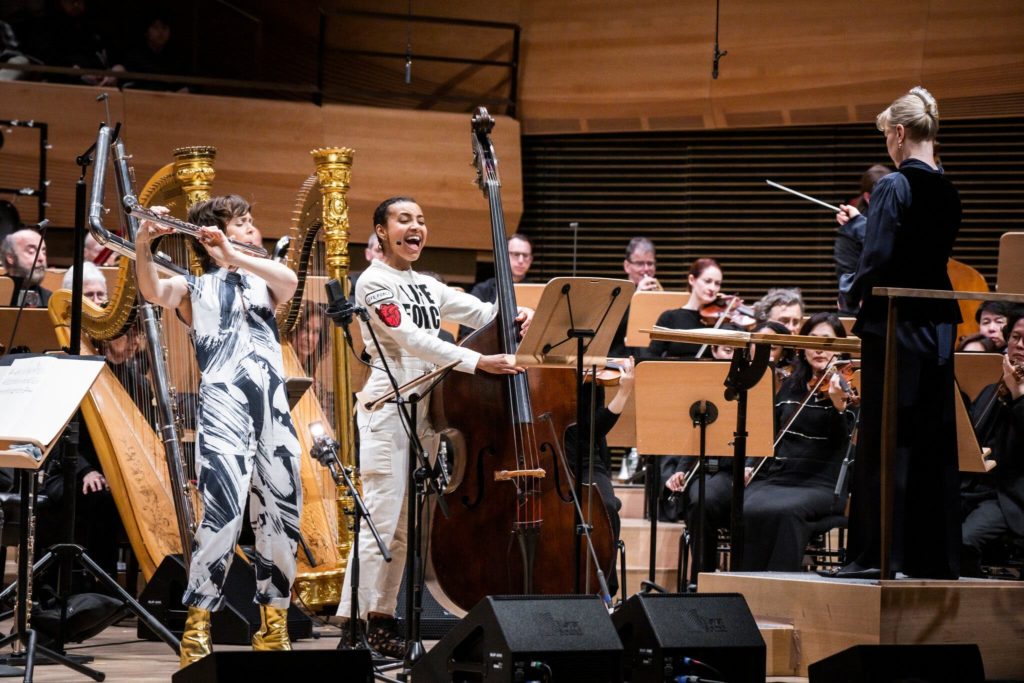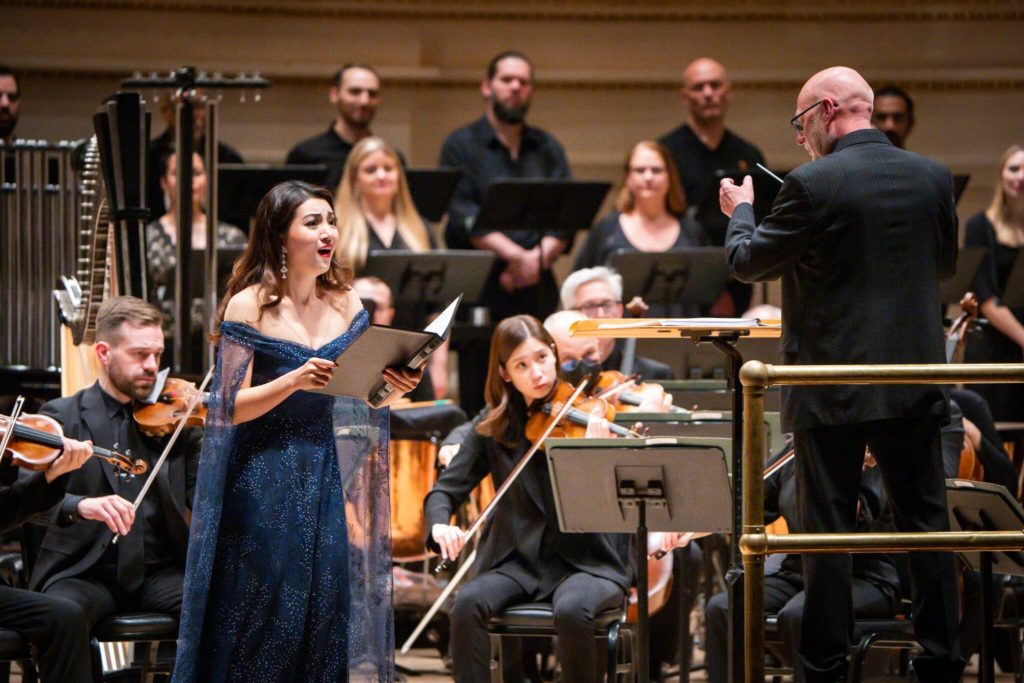VIEWPOINTS – Female conductors take on iconic Stravinsky Ballet Russes scores: Susanna Mälkki and Marin Alsop conduct PETRUSHKA and THE RITE OF SPRING, respectively
- By drediman
- April 4, 2023
- No Comments
This past Friday, I had the pleasure of attending a wonderfully coincidental double-header, in which two renowned female conductors took on a pair of iconic Stravinsky scores that were commissioned by Sergei Diaghilev’s his Ballet Russes. Here are my thoughts on these performances.

NEW YORK PHILHARMONIC
David Geffen Hall
First up at David Geffen Hall, Finnish conductor Susanna Mälkki helmed the New York Philharmonic in playing Stravinsky’s 1911 score for the ballet Petrushka. It’s a colorful piece of music that stands on its own as a standalone composition. Happily, Mälkki was able to bring out the vivid hues of the lively Stravinsky score, giving the work a textured, detailed quality. She treated the score’s recurring musical themes with intent and welcome variety, which gave the work true narrative drive and a full spectrum of color (to be precise, the ballet, which featured original choreography by Michel Fokine, chronicles the relationships and adventures of three puppet). The program also included Felipe Lara’s stupendous Double Concerto, which featured exuberant playing by soloists Claire Chase and Esperanza Spalding on flute and double bass/voice, respectively. With its syncopated jazz rhythms and its insistent cacophonic sensibility, the piece showcased the versatility of both Mälkki and the New York Philharmonic. The program opened with Charles Ives’s brief yet profound The Unanswered Questions, which opened the eclectic program in somber manner (RECOMMENDED).

THE PHILADELPHIA ORCHESTRA
Carnegie Hall
Then just a few hours later over at Carnegie Hall, the Philadelphia Orchestra – for one night only – played a searing rendition of Stravinsky’s The Rite of Spring, a piece that incited rioting on the streets of Paris when the ballet premiered in 1913. Under the baton of American conductor Marin Alsop (a longtime music director of Baltimore Symphony Orchestra), the game-changing work sounded simultaneously terrifying yet sublime. Throughout, Alsop was in total control of the score’s tug-of-war between barbarism and ecstasy (the piece depicts the ceremonial sacrifice of a young maiden to usher in spring). Indeed, it was a master class performance that proved that Stravinsky’s audacious work still has the power to shock and awe in the right hands. Also on the bill was the New York premiere of John Luther Adams’s beautiful if lulling Vespers of the Blessed Earth. Here, the sensitive playing by the Philadelphia forces’ string section – alongside the lovely contribution of soprano Meigui Zhang – absolutely shimmered and was in stark contrast to the savagery displayed in Stravinsky’s score, evoking another side of spring and nature altogether (the Adams piece was capably conducted by Donald Nally, who with Ms. Alsop, admirably stepped in for an ailing Yannick Nézet-Séguin) (RECOMMENDED).

 Copyright © 2024
Copyright © 2024
Leave a Reply